Alaska Airlines tests reusable r.Cups on flight from Seattle to Minneapolis
Share
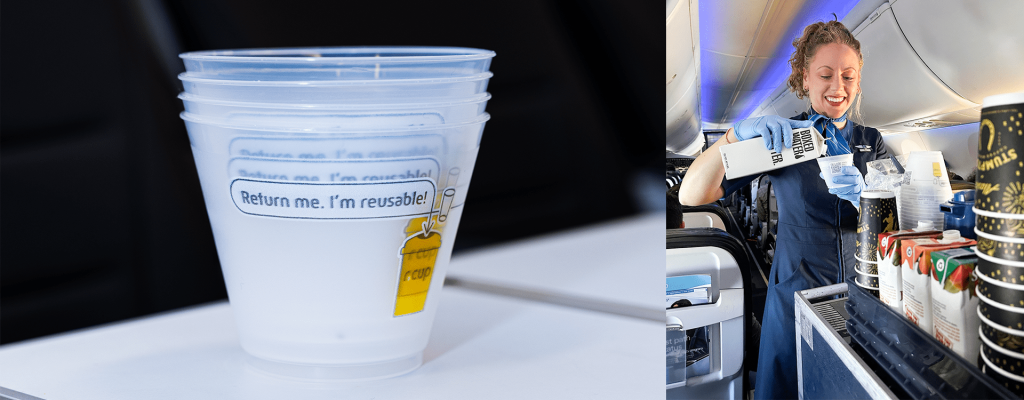
Summary
Alaska Airlines offered guests the chance to be among the first to try reusable r.Cups in the air.
This feasibility study with r.Cups will help us explore new ways to reduce onboard waste, aiming to bring sustainable innovations to our fleet and the broader travel industry.
On National Reuse Day, Oct. 20, Alaska Airlines partnered with r.World to take sustainability efforts to the next level with reusable cups. Over the weekend, we flew our first roundtrip feasibility study from Seattle to Minneapolis, home to r.World, giving our guests the chance to be among the first to try out their reusable r.Cups in the air.
Designed to be durable and fully reusable, r.Cups are a huge hit among concertgoers and sports fans, and we hope they’ll soon find a place in the hearts of travelers too! These cups reduce waste because they’re designed to be reused instead of tossed aside – helping to eliminate single-use waste. After use, the cups are collected, cleaned and sanitized and made ready for their next journey.
We’re excited to team up with Alaska Airlines to take reuse to new heights on National Reuse Day. Together we’re showing that reuse is an easy way to eliminate single-use waste on flights. Alaska Airlines is leading efforts to bring sustainable innovations to their fleet and overall travel industry.”
Commitment to Care & Reducing Waste
We’re committed to caring for our employees and guests, the communities in which we live and work, and the planet we share. From immediate actions to long-term investments, we’re focused on cutting carbon emissions, reducing waste and protecting local ecosystems. Part of this process is trying new things, to understand what works and what doesn’t in the unique operating environment of aviation, with emphasis on safety, service, and care. Our recent feasibility study with r.World is one example. Learn more about our continued journey here.
This feasibility study will help us better understand additional ways we can cut onboard waste. While we are only running a limited test at this point, we hope to gain valuable lessons and learnings that we can bring forward.”
Some ways we’ve reduced single-use plastics & waste:
In Jan. 2023, we became the first airline to deliver a plastic-free beverage service to guests onboard, swapping out plastic cups with responsibly sourced Sustainable Forestry Initiative (SFI)-certified paper cups, or in First class, reusable glassware. This transition eliminates 55 million plastic cups annually.
In 2021, we replaced plastic water bottles with Boxed Water™ and continue working to assess and test additional alternative items. Previously, we switched from serving water from plastic water bottles to using Boxed Water™, which is served from 92% plant-based cartons.
Through a national partnership with the Surfrider Foundation, we conduct a series of West Coast beach cleanups and worked to raise awareness about the impact of plastic waste.
Allowing guests to pre-order meals has resulted in a 61% reduction in our food waste in 2023 compared to 2019, equivalent to 460,000 meals.
In 2018, we became the first U.S. airline to ditch plastic straws and stir sticks on board.
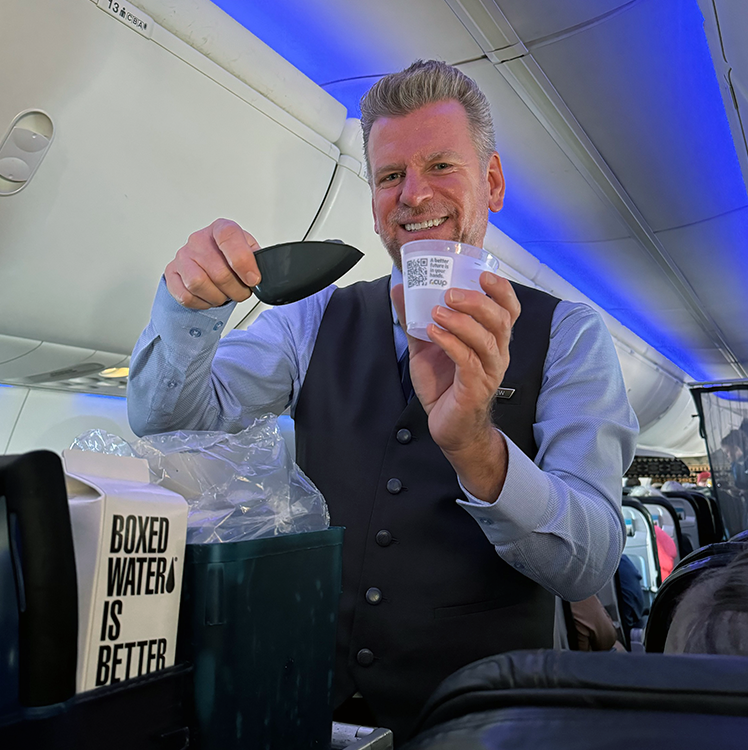
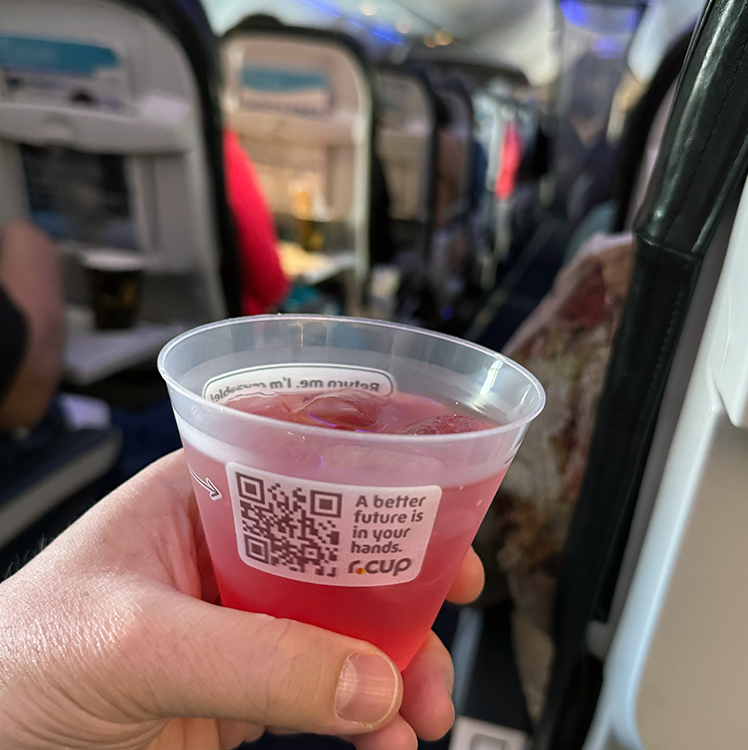
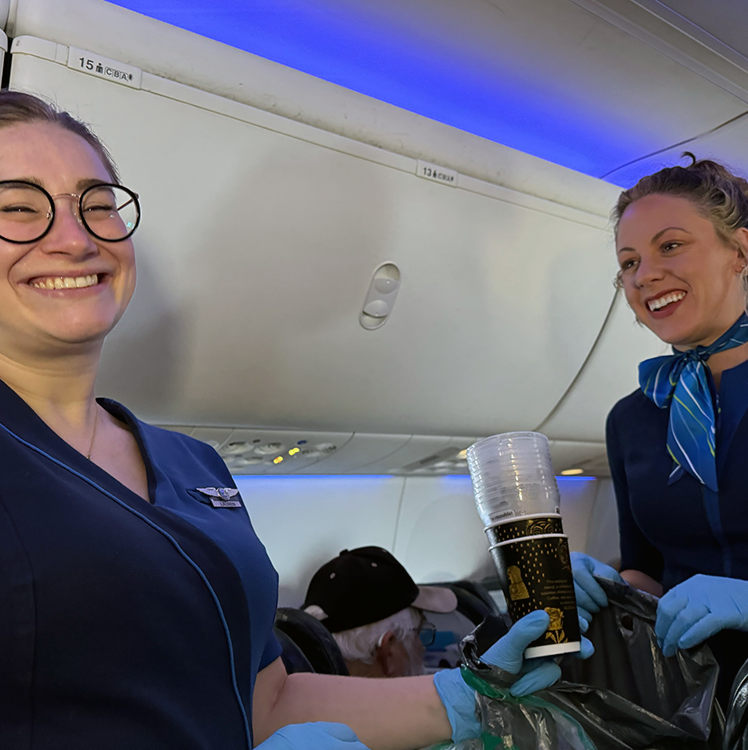
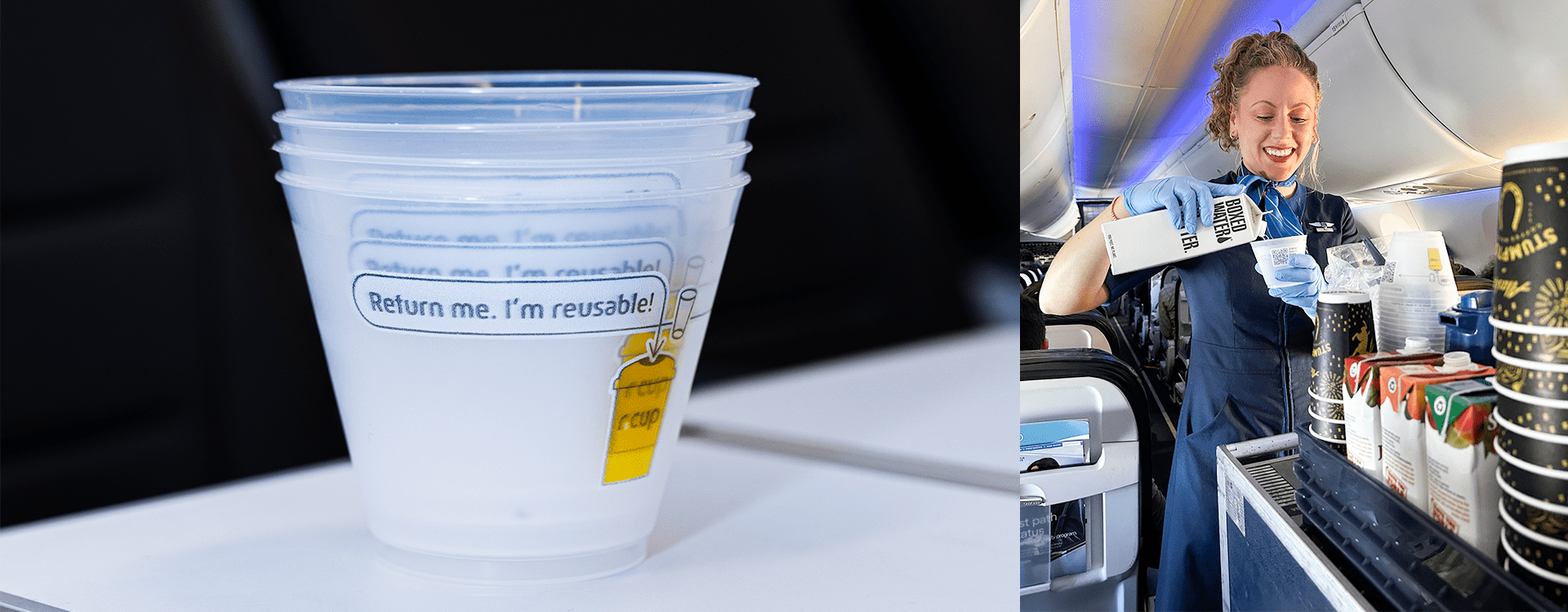


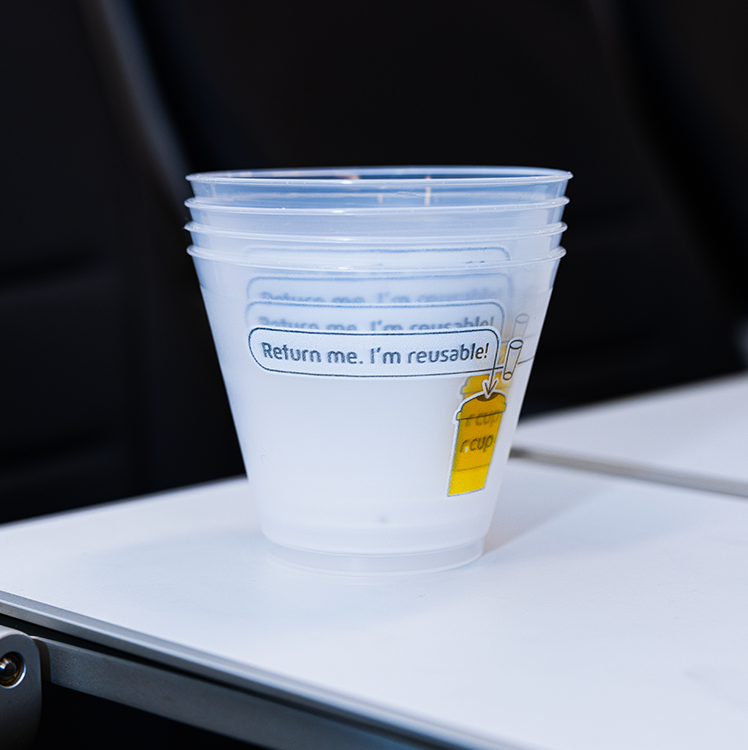
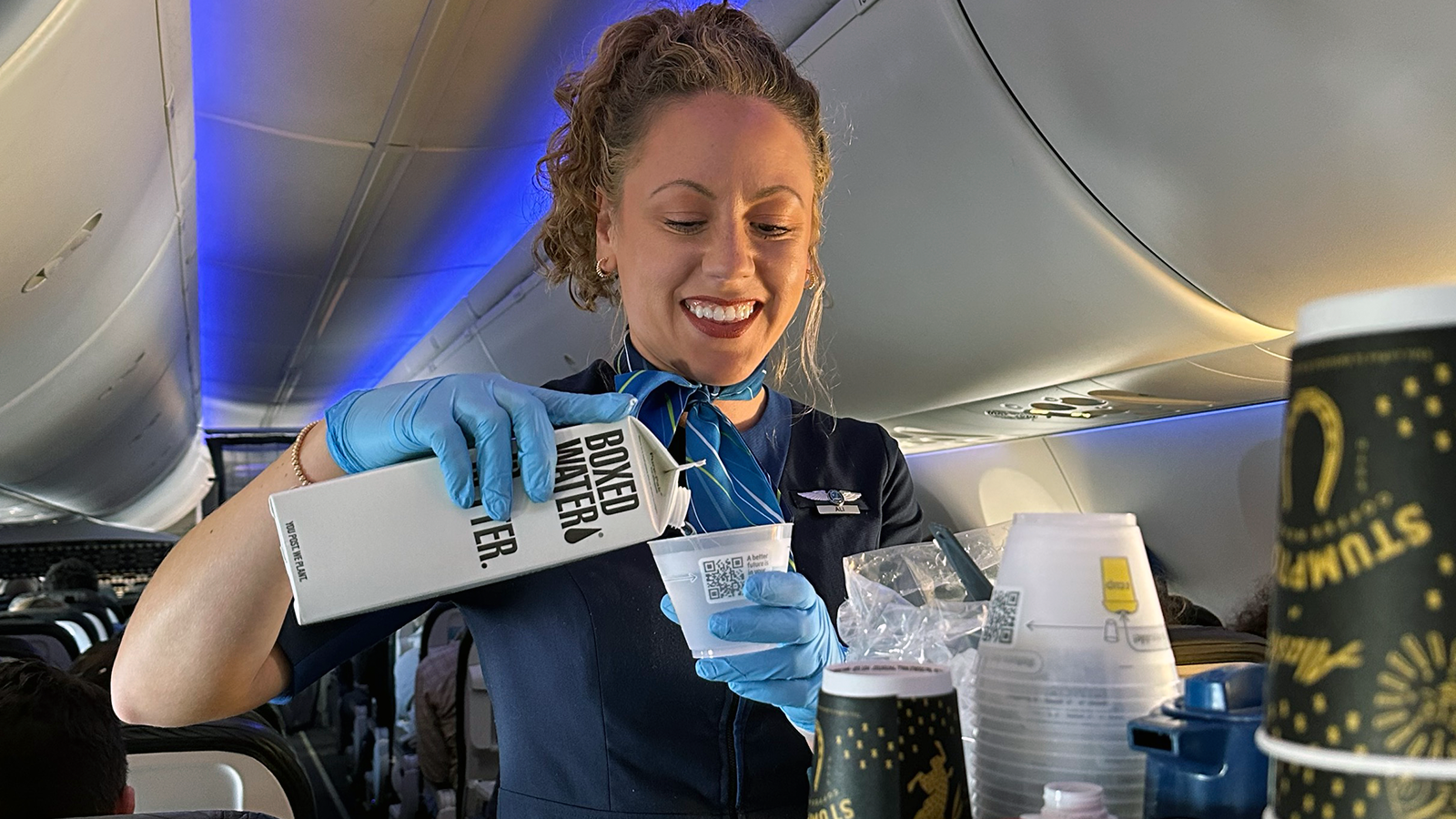
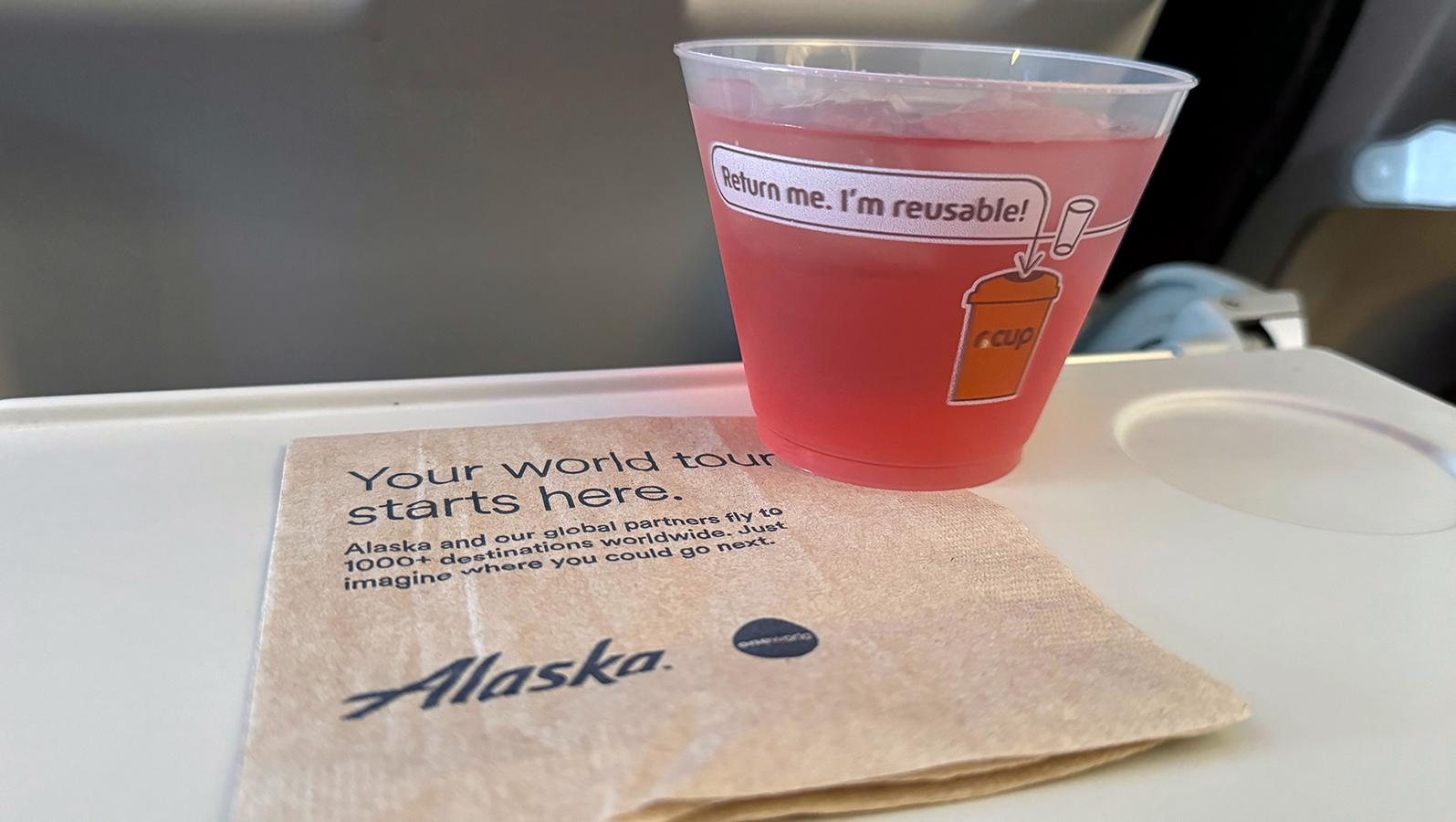
Such a great idea! I hope Alaska finds using reusable cups feasible. It’s so unnecessary to waste a single-use plastic cup for a few sips of water.
This is so great! I’m glad to see a company like Alaska stepping up to embrace sustainability in meaningful ways, and finding good partners to help them along the way. Would love to see this program expand to more and more hubs.
Love that Alaska Airlines is trying reusable r.Cups! Finally, some real steps towards cutting down on all the waste from flying. It’s simple, smart, and feels like the kind of thing more airlines should be doing. Can’t wait to see this become the new normal!
This is so cool! We need more business to step to the forefront of sustainability. Bravo Alaska!
This is a great step forward. I always wondered how many cups were being wasted while on a plane ride. Many times new cups are given when a second beverage service occurs leading me to think about the unnecessary waste produced but now to know the cups aren’t actually wasted and will be reused is absolutely a step in the right direction.
This is an incredibly impactful way to reduce waste in a massive industry. Thank you Alaska for leading by example to help reduce waste. I hope to see other airlines partner with companies like r.World who are providing realistic solutions.
This is so cool! Awesome to see Alaska is setting an example in sustainability.
I notice cabin waste every time I fly and it seems unnecessary given the cups and snacks are consumed in a brief amount of time, it just seems so wasteful. I’m so excited to see Alaska implementing reusable cups in their operations! I hope Alaska figures out a method to implement this waste-eliminating solution on more flight routes and also replace other singe-use packaging with reusable alternatives. Thanks for always being the airline that leads the way in sustainability!
Thanks for leading the way on this Alaska!
Best news in a long time. I’ve watched Alaska flight attendants do what they can to sort recycling in real time on flights. This is such a good alternative!